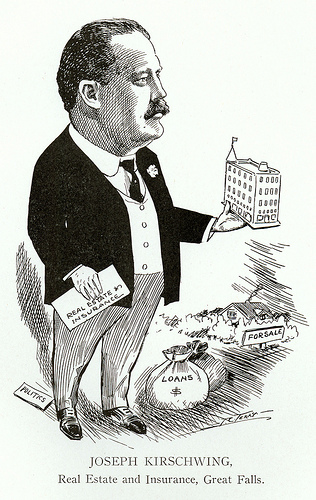A Loan Guaranty is a promise by the guarantor to pay the debt of another. In commercial real estate loans they are commonly used to provide additional security to the lender. Such loans are often given to new entities without a financial history, and the lender wants a person (with assets) on the hook for the debt if the entity fails. Last week I discussed a decision where the guarantor excluded a house from liability on the guaranty, but when he sold the home, the cash proceeds could be grabbed by the creditor. This article concerns the scenario in which the guarantor can escape liability, if the it turns out that they signed what courts consider a “sham guaranty.” This could arise due to deliberate action by the lender, insufficient investigation by the lender, or inartfully worded guaranty language. Parties concerned about what exactly their guaranty covers should consult with a Sacramento real estate attorney.
 Civil Code section 2787 provides that a “guarantor is one who promises to answer for the debt, default, or miscarriage of another…” What has become known as a sham guaranty is one where the guarantor is found to be the same as the borrower. The clearest case is where an individual signs a promissory note promising to pay the debt. The lender requires the same individual to sign a guaranty for the same debt, waiving many defenses. For example, there are statutory anti-deficiency protections for real estate borrowers, prohibiting the lender from collecting from the borrower. These protections are not extended to guarantors, and loan guaranties usually have waivers of all these defenses. In the sham guaranty the lender may think that by having the same borrower guaranty the loan allows for a deficiency judgment against the borrower as guarantor. Or, it may be used in hopes that the borrower/guarantor does not understand, and truly expects to be personally liable for the debt.
Civil Code section 2787 provides that a “guarantor is one who promises to answer for the debt, default, or miscarriage of another…” What has become known as a sham guaranty is one where the guarantor is found to be the same as the borrower. The clearest case is where an individual signs a promissory note promising to pay the debt. The lender requires the same individual to sign a guaranty for the same debt, waiving many defenses. For example, there are statutory anti-deficiency protections for real estate borrowers, prohibiting the lender from collecting from the borrower. These protections are not extended to guarantors, and loan guaranties usually have waivers of all these defenses. In the sham guaranty the lender may think that by having the same borrower guaranty the loan allows for a deficiency judgment against the borrower as guarantor. Or, it may be used in hopes that the borrower/guarantor does not understand, and truly expects to be personally liable for the debt.
The sham guaranty defense extends to partnerships. In a general partnership, where each partner is already liable for debts of the partnership, their guaranty of partnership debt would be a sham. For Limited Partnerships, the same could apply to the general partner. River Bank America v. Diller is instructive, in a case where the principals of the corporate general partner signed the guaranty. The Bank wanted the borrower to form a limited partnership to be the borrower. A new entity was formed to be the general partner. The lender always considered the individuals as the primarily obligors, and had them guaranty the loan. The lender did not investigate the financial health of the new entity created to be general partner. The court found that, had the individuals themselves been the general partners, and had they attempted to guarantee the debt, there is no question such guaranty would have been a sham. Instead, the general partner of the primary obligor is a corporation which the individuals fully owned and controlled. However, the court found that this was a distinction without a difference. (The court was influenced also by evidence of the lender’s intent to subvert the antideficiency protection.
 California Real Estate Lawyers Blog
California Real Estate Lawyers Blog


 In
In  In
In  In
In  In
In  In a recent decision the court enforced a general reference provision that did not include an explicit waiver of a jury trial. In
In a recent decision the court enforced a general reference provision that did not include an explicit waiver of a jury trial. In In
In 
 Civil Code section 2787 provides that a “guarantor is one who promises to answer for the debt, default, or miscarriage of another…” What has become known as a sham guaranty is one where the guarantor is found to be the same as the borrower. The clearest case is where an individual signs a promissory note promising to pay the debt. The lender requires the same individual to sign a guaranty for the same debt, waiving many defenses. For example, there are statutory anti-deficiency protections for real estate borrowers, prohibiting the lender from collecting from the borrower. These protections are not extended to guarantors, and loan guaranties usually have waivers of all these defenses. In the sham guaranty the lender may think that by having the same borrower guaranty the loan allows for a deficiency judgment against the borrower as guarantor. Or, it may be used in hopes that the borrower/guarantor does not understand, and truly expects to be personally liable for the debt.
Civil Code section 2787 provides that a “guarantor is one who promises to answer for the debt, default, or miscarriage of another…” What has become known as a sham guaranty is one where the guarantor is found to be the same as the borrower. The clearest case is where an individual signs a promissory note promising to pay the debt. The lender requires the same individual to sign a guaranty for the same debt, waiving many defenses. For example, there are statutory anti-deficiency protections for real estate borrowers, prohibiting the lender from collecting from the borrower. These protections are not extended to guarantors, and loan guaranties usually have waivers of all these defenses. In the sham guaranty the lender may think that by having the same borrower guaranty the loan allows for a deficiency judgment against the borrower as guarantor. Or, it may be used in hopes that the borrower/guarantor does not understand, and truly expects to be personally liable for the debt. In
In